The Tsaatan are the last reindeer herders who have survived for thousands of years inhabiting the remotest areas of Mongolia and moving between 5 and 10 times a year usually when the seasons change. They are the last of the truly semi-nomadic tribes.
Who are The Tsaatan?
Contents
There has always been an aura of mystery surrounding these very private, very hardy and mystical people. Not a lot is known about their ways. They have kept to themselves, supported and sustained themselves forever all based on the reindeer, hence them being known as the reindeer people. They do not move so much any more as the number of the Tsaatan are dwindling dramatically. There are now just 400 of them in Mongolia. Why? The reindeer themselves, that the Tsaatan rely on, are dwindling in numbers.
The Lifestyle of The Tsaatan
The Tsaatan have always been totally reliant on the reindeer. The reindeers have always been the lifeblood of the Tsaatan. The Tsaatan need the reindeers. Their reindeers provide them with milk, cheese, and most importantly as their transport. They do not use the reindeer for meat. They sew their clothes with reindeer hair. They use the reindeer dung as fuel for their stoves. The antlers of the reindeer are used to make tools. They have been totally self sufficient in everything, as long as they have their reindeer. The Tsaatan have lived in the remotest but most amazingly beautiful mountain taigas of Mongolia. The Tsaatan nomads have a rich and sophisticated knowledge of their natural environment. They have always relied on a shaman to heal them, using the flora and fauna of their environment, which they know intimately. They have been a remote and difficult to understand tribe because they have kept to themselves.
Why they have had to change their lifestyle
They do not move so much anymore. What has happened to ruin their livelihood that will probably see the very end of this very significant nomadic tribe? Hunting, mining and other industries have culled the reindeer population making the very existence of the Tsaaten unsustainable. The reality for them now is that the only way to survive for a while longer is to turn themselves into a sideshow for tourists. The Tsaatan Community and Visitors Center was established to assist their survival, because”
- The lack of sustainable income sources compatible with the reindeer-herding lifestyle of the Tsaatan community, who rank among Mongolia’s poorest inhabitants.
- The increasing trend of irresponsible and exploitative tourism that negatively impacts the Tsaatan and their environment, and brings little or no benefit to the community.
- The wider problems of marginalization and disenfranchisement that markedly affect the Tsaatan It has been said that the Tsaatan won’t exist in thirty years. The changes that they have been forced to adopt is killing them. From an insular mini society, to a world stage has to be the biggest cultural shock not to mention the enormity of the change to the very way that they have always lived.
Sustainable tourism or sideshow alley?
- they need money, we have it
- they need reindeers, we kill them
- the reindeers need the forests, we see them as an untapped resource
- those who can are leaving the only life they have ever known and are “attempting” to urbanise
They don’t have a lot of choice. Will we lose this valuable tribe with inherent knowledge of the environment and the ways of the reindeers, of a self contained and functioning community if we don’t assist with sustainable tourism? Is this responsible tourism?
Have the Tsaatan gone the way of the Long Neck Karen, a hill tribe of northern Thailand who have turned to the tourist dollar to survive their oppressive past and to survive? Are the Tsaaaten similarly doing this though necessity as opposed to choice? I do not have the answers at all. It is a very difficult and ethical issue. I just find it all terribly sad and a great loss to us all. This is part of the A to Z Blogging Challenge, 2014

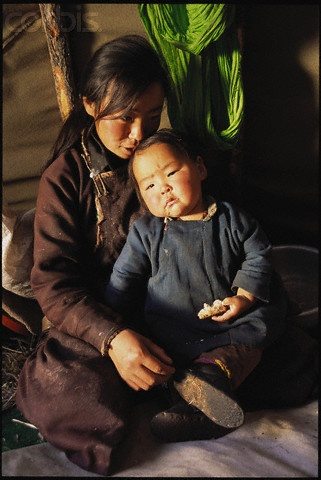
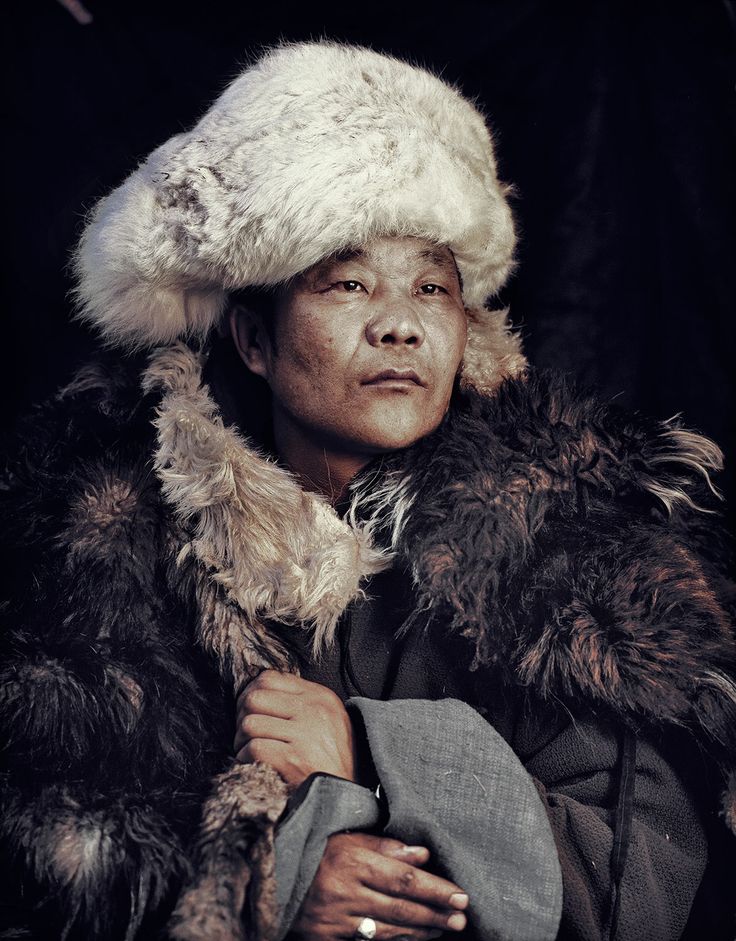
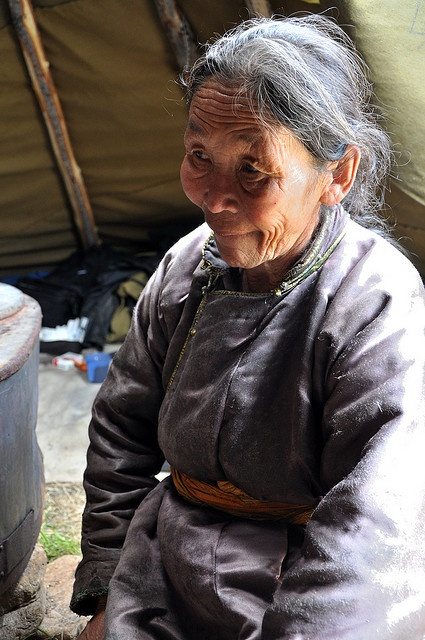
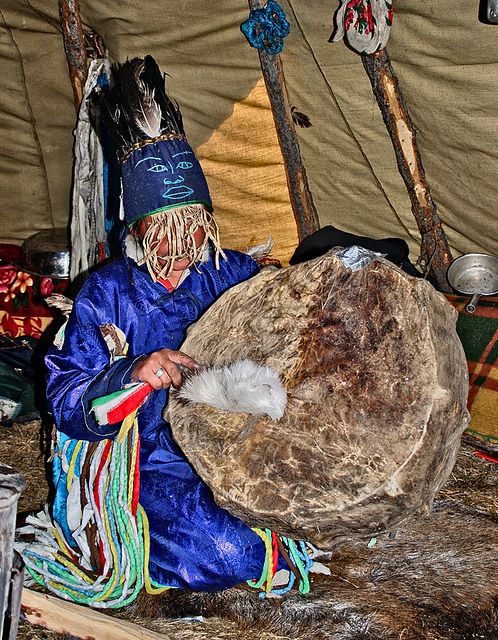
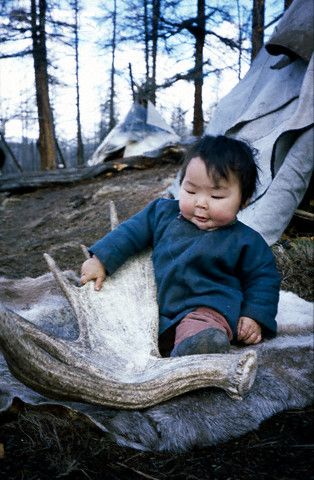
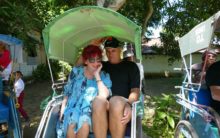
An amazing culture, so sad that it is disappearing.there doesn’t seem to be any simple solution to this problem and it has happened d to so many other cultures too. Your story is an important record of their way of live. Very sad.
It is heart breaking I think and as you say, becoming very common. Thank you for your response
That sounds like an incredibly sad story Paula. The truth of the matter is probably that the Tsaatan people need to adjust somehow to the changing environment. Money alone is usually not the answer and ending up in a tourist shop in Inle like the long neck women isn’t either. But maybe there is a solution that allows them not being sorely dependent on reindeer. Maybe there is some other cattle they can use, or maybe there is a completely different solution. Having all these tribes vanish completely would definitely be an irreplaceable loss and a real shame…
I still don’t know the answer other than yes, I feel that it is so very sad and such a loss. Though we may not ever have known much about these people (and we still don’t) if they hadn’t come in to the ‘western’ world so to speak. Dilemma on every level
I learned something today. I did not know that these people, the Tsaaten, even existed. Like you, I’m sorry that their way of life is disappearing. Unfortunately, movement is inevitable although we can’t always call it progress. Modern life has a tendency to railroad over every other way of life.
Thanks for sharing.
Thanks, it is such a dilemma and in so many ways very sad.
Wow, food for thought! My entry today was on Mongolia and the nomadic way of life as well, however we did not visit the Tsaatan. I agree that most native peoples are losing their way of life, and nomadic ways are quickly becoming a thing of the past. What I learned living in Turkey, and it was reiterated in Mongolia, is that the governments are requiring people to have permanent addresses, for things like driver’s licenses and taxes. Education is becoming more and more obligatory. Children of nomadic families must find someone to live with in order to go to school. I don’t think there are any good answers.
I don’t think that there any good answers either.
That must be so hard for this generation of Tsaatan to be on the cusp of momentous change for their tribe. I suppose there’s no push(on the outside world’s part) to preserve reindeer populations in an effort to preserve this culture. I gave much thought before visiting a Cultural Village in Chiang Mai, Thailand that included the Long Neck Karens. I made a point of speaking with them instead of just taking their pictures. It appeased me to know that the lady I spoke with felt that her situation in the Cultural Village was better than the one she had escaped — working in fields while wearing the heavy coils and then fleeing persecution by the Burmese. She thought weaving and tending her stall was much easier than fieldwork. However, I detected a yearning to be more in control of her situation, too.
Like you we also spoke with the Karen. I felt that they did feel like a show side display and that there was that far away look in there eyes. but, it was in other expects and better life. So many ethical dilemmas. Thanks so much for your really well considered comment.
What a fascinating culture and what a shame life for them as they have known it is disappearing. It seems to be the way of the world today that if they don’t embrace eco tourism, the future is not good. It’s happened to the Masai people of Africa and others in South America. Hopefully those helping them with ecotourism only have the tribes interest at heart
This is my worry that there may be people making money out of the uniqueness of the lifestyle, culture and traditions of these very private people.